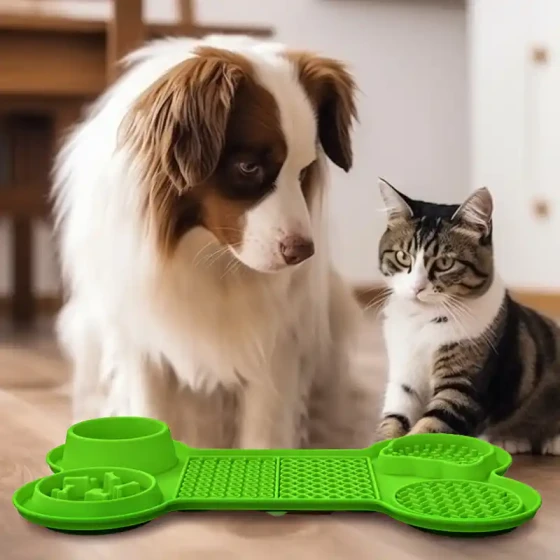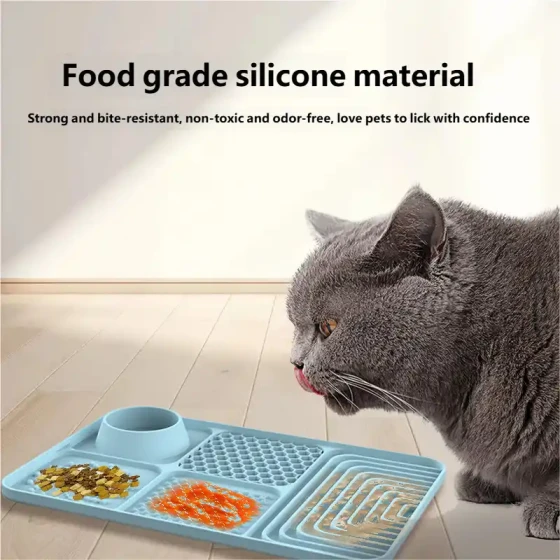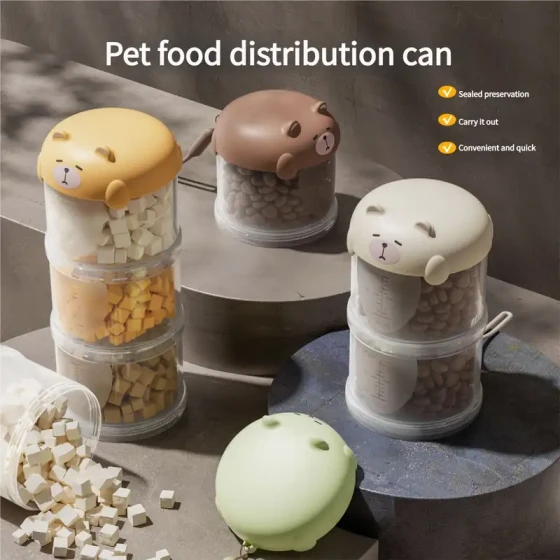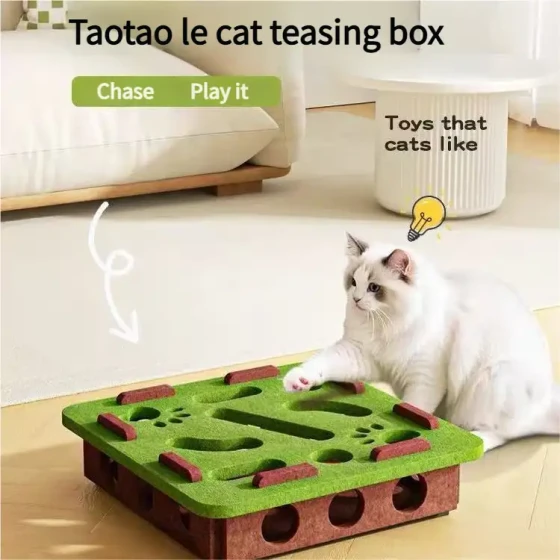How is the Chinese Li Hua Cat as a Pet Cat? Is it Suitable for Raising?
When mentioning the Chinese Li Hua cat, many people might picture the lively and nimble tabby figure around street corners, carrying a sense of wildness and aloofness. This seems to be a kind of "Chinese rural cat" that we are very familiar with — common and even "cheap." However, when we truly focus on the three words "Chinese Li Hua cat" and try to examine it in the context of "pet cat," we find things are far more complex and interesting than the label "just a local cat."
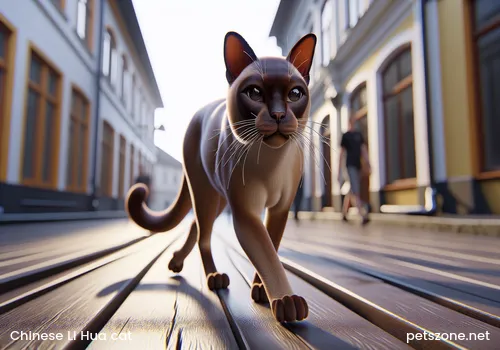
Debate on "Origin": From Rural to Pedigree, the Identity Recognition of the Chinese Li Hua Cat
First, it must be clarified that the "Chinese Li Hua cat" we mention today has specific standards and definitions internationally, especially recognized by authoritative organizations like the CFA (Cat Fanciers' Association). It is called "Chinese Li Hua," a natural breed that has been observed, refined, and recognized for stable genetic characteristics. This differs from the generic tabby-colored "rural cats" (Domestic Shorthair/Longhair, i.e., house cats). The latter is a mixed group with unfixed bloodlines and diverse traits; the former theoretically refers to cats meeting specific physical features (such as unique broken mackerel stripes or classic tabby patterns, sturdy body, a clear "M" on the forehead, extended lines at the eye corners, lighter color at the hair roots, etc.).
Of course, in the actual domestic breeding environment in China, the vast majority of Chinese Li Hua cats we encounter are indeed "rural champions" with difficult-to-trace bloodlines. But this does not stop us from exploring the potential of this type of cats, which share similar appearances and common personality traits, as companion animals. The key is to put aside the obsession with "purebred" and focus on the individual’s own qualities.
Interpretation of Nature: The Call of Wildness and Balance in Urban Life
The Chinese Li Hua cat (including broadly the rural tabby cats) can thrive and survive over vast lands, enduring thousands of years of natural selection. Its core competitiveness lies in:
- Extremely strong adaptability and survival intelligence: Imagine how they find food, avoid predators, and reproduce in a changing environment without stable cat food supply or warm shelters? This shapes typically Chinese Li Hua cats as very smart, highly alert, and quick learners. They are keen observers and can quickly understand their owner's intentions (or judge which actions benefit themselves). Opening a door or reaching for high objects might be no problem for them. This intelligence is both an advantage and a sign that they need mental stimulation; otherwise, boredom might lead them to develop some troublesome "entertainment projects" for you.
- Strong physique and relatively low risk of genetic diseases: Having undergone natural selection, "fragile" individuals have long been eliminated. Generally, Chinese Li Hua cats have a robust constitution, are less picky about food (note this does not mean arbitrary feeding; scientific feeding is fundamental for all cats), and have relatively stronger immunity. Compared to some purebred cats prone to specific genetic diseases (such as certain heart or kidney risks in particular breeds), Chinese Li Hua cats are indeed much less worrying in this respect. This is quite appealing for those on a budget or first-time cat owners looking for "hardy and easy" pets. To quote an old saying, "Lowly name but easy to keep," the rough words carry truth, reflecting this resilient vitality.
- Independent personality and a perfectly measured sense of distance: This is a very core part of the Chinese Li Hua cat’s character and an essential consideration for potential owners. They are usually not the type of cats who want to be cuddled or become your "leg accessory" all the time. They have their own ideas and rhythm, love to explore, and need space for solitude. This independence is not indifference. Many Chinese Li Hua cats show high loyalty to their chosen owners, waiting at the door for them to come home and expressing closeness in their unique ways (such as head-butting or quietly staying near). But they may not be clingy like some other breeds. This relationship is more like respectful partners with mutual space. Some foreign animal behavior studies also indicate that cats’ affection towards humans depends greatly on early socialization and genetics, so generalizations are difficult, but the Chinese Li Hua cat group shows relatively higher average independence.
Raising Chinese Li Hua Cats: Realistic Issues to Consider
Based on the above traits, whether the Chinese Li Hua cat "suits" you depends on your lifestyle and expectations:
- Can you provide enough activity space and mental satisfaction? They usually have abundant energy, especially younger cats. They need vertical space (cat trees) for climbing and jumping, as well as toys and interactions to expend energy and satisfy their hunting nature. If the living space is small and the owner has no time to play, they may feel oppressed or become destructive.
- Can you accept and appreciate their independence? If you expect a cat to be a "little lamb" you can hug and pamper anytime, the Chinese Li Hua may disappoint you. You need to understand and respect their boundaries and accept their "on-again, off-again" way of showing affection. Their love is often reserved and deep.
- Do you have patience for guidance and building trust? Especially adopted adult Chinese Li Hua cats who might be cautious due to past experiences. Building trust requires time, patience, and proper methods. They are smart, and once they recognize you as reliable, they show great loyalty and dependence, but this process may take longer than taming a cat raised from kittenhood at home.
- Source issue: adoption instead of purchase? Given the prevalence of Chinese Li Hua cats domestically, and the large number waiting in shelters and rescue centers (including mixed cats), "adoption over purchasing" is particularly meaningful here. This is not only a sign of kindness but fits their “adapter” identity. Of course, choosing adoption means you need to pay more attention to their health (internal and external deworming, vaccinations, check-ups) and behavioral habits (whether behavioral corrections are needed).
Conclusion: Whether a Rough Jade or a Stubborn Stone Depends on the Sculptor and Appreciator
Returning to the original question: How is the Chinese Li Hua cat as a pet cat? Is it suitable for raising?
The answer: The Chinese Li Hua cat can be an excellent companion animal, but whether it is "suitable" for you is a highly individualized matching issue.
They are uncarved jade, shining with wisdom, toughness, and unique charm bestowed by natural selection. They may lack the softness of exotic short-haired cats, the sweetness of Ragdolls, or the chattiness of Siamese cats, but they possess weathered calmness (sometimes alert), unpretentious loyalty (that needs time to unlock), and a primal and vigorous vitality.
Raising a Chinese Li Hua cat requires a mindset to appreciate "natural ecological" beauty, understand and accept the inherent independence and intelligence, and be willing to invest time and energy to build a deep trust relationship. If you can do this, what they give back will be more than a pet; they may become a spiritually rich family member living in tacit harmony with you.
As some experienced cat owners say, keeping a Chinese Li Hua is sometimes like sharing a rental with a thoughtful roommate — mutual respect and adjustment finally lead to harmony. For those who value a cat’s independence, intelligence, vitality, and do not demand constant clinginess, the Chinese Li Hua cat is undoubtedly an excellent choice. Their existence itself is a vivid natural epic worthy of careful reading and cherishing.
So, stop simply labeling them as "local cats." Once you truly understand a Chinese Li Hua cat, you may discover that this tabby figure from street corners can also perform a unique and refined "high-end" companionship story in your home.
